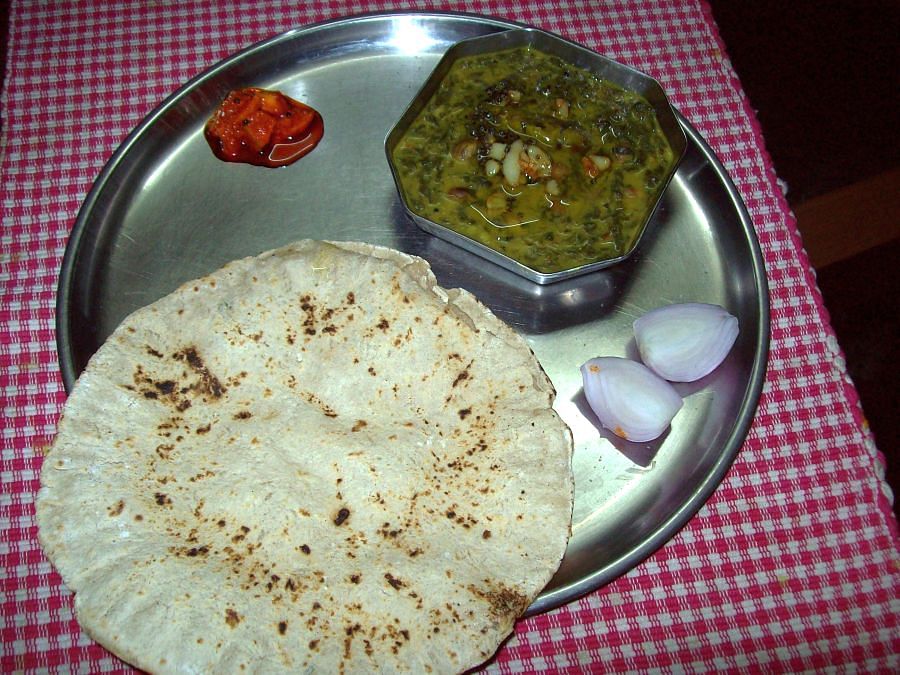
Nothing can beat a jolada rotti oota (meal), whether it is for taste or for the health benefits it offers.
Jolada rotti (in Kannada) is the staple food in the northern parts of Karnataka, while the same is called bhakri in Maharashtra, and jowar roti in Hindi. In English, jowar is known as sorghum millet.
According to the Whole Grains Council (a non-profit consumer advocacy group based in the US), sorghum was found about 8000 years ago in ancient Egypt. It also says that there is evidence that sorghum has been cultivated in India since the third or fourth millennium BCE.
According to The National Center for Biotechnology Information (NCBI, USA), whole sorghum flour has protein, sulphur, phosphorus, potassium, magnesium, calcium, amino acids and several other nutrients. Moreover, it is gluten-free and can be consumed by those suffering from celiac disease, too.
Jowar is clearly a superfood as it is a known fact that it is very rich in fibre and is hence good for health.
The Indian Institute of Millets Research has found that such millets can help in detoxifying the body, lowering cholesterol, preventing type 2 diabetes, reducing blood pressure, offering protection against heart diseases, optimising kidney, liver and immune system health, reducing the risk of gastrointestinal conditions like gastric ulcers or colon cancer, eliminating constipation, excess gas, bloating and cramping, among others.
More specifically, the Whole Grains Council lists the following health benefits of sorghum:
Scientists at the University of Missouri found that sorghum extracts were effective against human colon cancer cells.
Sorghum bran with high phenolic content and high antioxidant properties could affect critical biological processes that are important in diabetes and insulin resistance.
In the University of Nebraska, research has shown that sorghum is a rich source of phytochemicals and that sorghum grains contain beneficial components that can manage cholesterol levels in humans.
Studies in Texas University has found that sorghum may reduce the risk of certain cancers and promote cardiovascular health.
Other health benefits:
The magnesium in sorghum regulates the calcium level in the body. Magnesium and calcium are important for good bone health.
Being fibre-rich, it ensures good digestive and intestinal health.
Research in the University of California found that sorghum contains niacin or vitamin B3, which facilitates the conversion of food to usable energy.
Sorghum bran is rich in tannin and other enzymes. So, consuming rotis made from whole sorghum flour is safe for diabetics as it ensures the sugar levels in the blood are regulated.
How to consume jowar:
The most common and healthy way of consuming it is to make rotis. For this, sorghum flour has to be made into a dough by adding hot water to it. One needs to knead this dough very well and set it aside for a while to get good rotis.
Next, roll out the dough with a rolling pin, sprinkling flour, so that it does not stick. While roasting it on the tava, a bit of water must be sprinkled on it. Keep turning it and sprinkling water until cooked.
This roti should preferably be eaten while hot. Traditionally, the North Karnataka accompaniment is badanekai yennegai (brinjal curry). However, it can be eaten with other pulse curries, too.
A variant of this roti is the khadak roti, which is hard like papad. This can be stored for several months. To soften it, dip it in water for a few seconds and heat it on a tava.